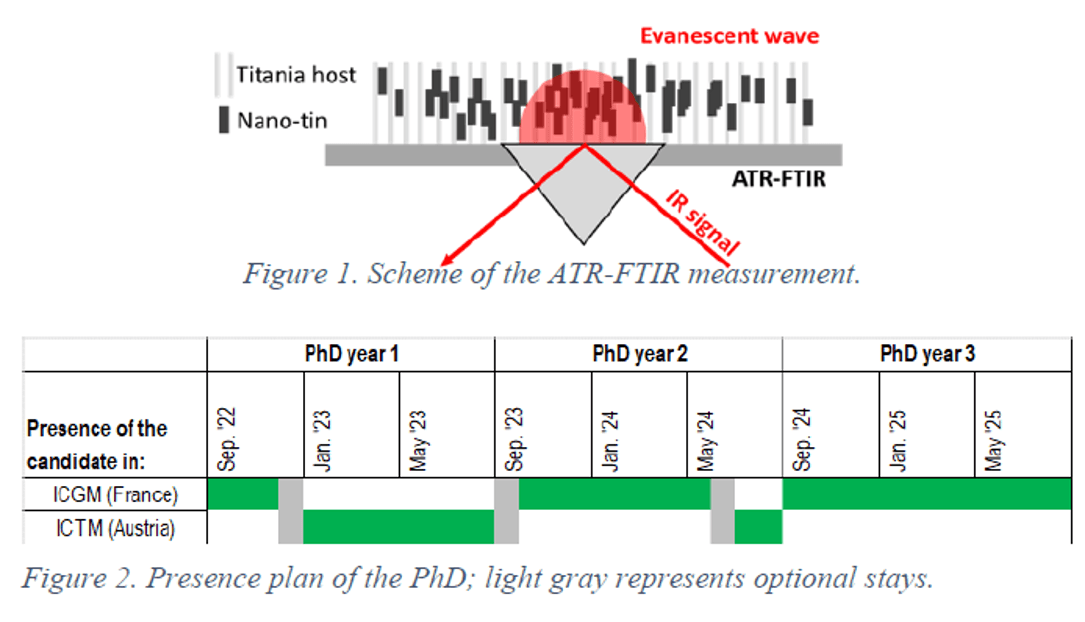TOPIC 11 - Battery End-of-life Access Through Liquid Electrolyte Spectroscopy (BEATLES)
Research on Li-ion batteries have focused for years on the solid-electrolyte interphase (SEI) at the early stages of the battery life. Understanding the cycling mechanisms and SEI stability at the cathode and anode was instrumental in bringing Li-ion devices on the market. We will now focus on the neglected end of life (EoL). EoL strongly depends on the electrode and electrolyte chemistries and of the cycling conditions. Thus, the EoL is both cell specific and operation specific. Operando measurements provide an interesting way of studying the battery components in systems as close as possible to the real battery environment, giving access to information that could not be obtained in post mortem or even in situ measurements.7 Operando FTIR is a technique that proved its efficiency in the study of electrolytes and electrodes surface,8-12 and it is a powerful tool to understand electrolyte decomposition mechanisms and pathways if coupled with GC-MS.13-14 Using gold and tin flat metal electrodes, it was proven that tin induces a continuous decomposition of the electrolyte.9 We will study the electrolyte decomposition using tin nanoparticles to accelerate the electrolyte decomposition.15 Our plan is to reach the electrolyte “end-of-life” much sooner than with a conventional full Li-ion cell. This approach emphasizes electrolyte decomposition and gives access to a large catalogue of molecules (FTIR signature, GC-MS retention times, compositions, and quantities).
The student will be registered at the University of Montpellier and spend the first months of the PhD in Montpellier at ICGM to finalize all the administrative steps of the hiring procedure, to start the literature review, to discover the ATR-FTIR instrument, all its pros and cons, and fully understand the need for nanomaterials. The student will afterwards spend 9 months in Graz at ICTM to synthesize and characterize the tin materials. The management team will be composed of Nicolas Louvain (MCF HDR; Montpellier), and Ilie Hanzu (ass. prof.; Graz). In the BEATLES project, we will focus on:
- The establishment of a catalogue of electrolyte decomposition products
- The study of a full NCA vs Graphite cell, and its electrolyte, by cycle-ageing (3 cycles at C/20, 94 cycles at C/2, 3 cycles at C/20) and calendar-ageing (3 cycles at C/20, 450 h in floating at 4.2 V, 3 cycles at C/20)
- The deposition of a synthetic fluorine-rich film on selected active materials to improve battery performance

Supervisor(s) contact: LOUVAIN, Nicolas, nicolas.louvain@umontpellier.fr


